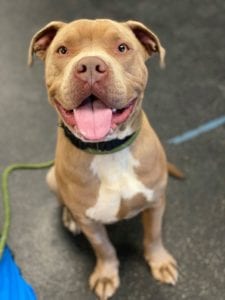You may have recently heard about animals contracting COVID-19. The APF wants to share the latest news from the American Veterinary Medical Association. Please note, there is no reason to be alarmed, and there have only been a negligible number of isolated cases.
Two dogs (Hong Kong) and two cats (one in Belgium and one in Hong Kong) living with people diagnosed with COVID-19 have been reported to have been infected with SARS-CoV-2, other dogs and cats also living with infected people remain uninfected. To date the CDC has not received any reports of pets becoming sick with COVID-19 in the United States. Infectious disease experts and multiple international and domestic human and animal health organizations continue to agree there is no evidence at this point to indicate that, under natural conditions, pets spread COVID-19 to people.
The USDA National Veterinary Services Laboratories has also confirmed the presence of SARS-CoV-2 in one tiger at a zoo in New York. This is the first instance of a tiger being infected with COVID-19. Several lions and tigers at the zoo showed clinical signs of respiratory illness and this tiger was tested accordingly. Public health employees believe the large cats became ill after being exposed to a zoo employee who was actively shedding virus. All of the large cats are expected to recover. No other animals in other areas of the zoo are exhibiting similar clinical signs. USDA and CDC are monitoring this situation.
If you are not ill with COVID-19, you can interact with your animals as you normally would, including feeding and otherwise caring for them. You should continue to practice good hygiene during those interactions (e.g., wash hands before and after interacting with your animals, including handling of food, supplies, and waste; keep feed, water, and any supplies used to deliver them clean; remove soiled bedding and replace as appropriate).
Out of an abundance of caution and until more is known about this virus, if you are ill with COVID-19 you should restrict contact with pets and other animals, just as you would restrict your contact with other people. When possible, have another member of your household or business take care of feeding and otherwise caring for any animals, including pets. If you have a service animal or you must care for your animals, including pets, wear a cloth face mask, don’t share food, kiss, or hug them, and wash your hands before and after any contact with pets.
There have been no reports of pets or livestock becoming ill with COVID-19 in the United States. At this point in time, there is also no evidence that domestic animals, including pets and livestock, can spread COVID-19 to people.
As always, careful handwashing and other infection control practices can greatly reduce the chance of spreading any disease.



